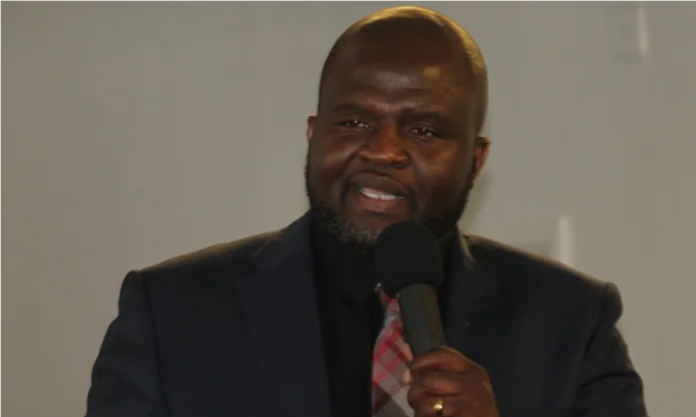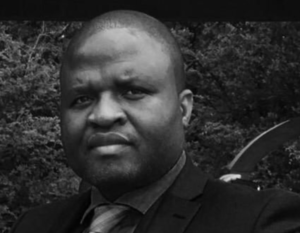By Tinomudaishe Chinyoka
The story will never be told one day, it really won’t, about how Haruperi Madhubeko was walking to the river to fetch water, when the news landed on her phone. The borehole broke down two seasons ago, a pump-minder has indicated he needs 155RTGS to repair it but, this not being an election year, neither the MP not those looking to replace him are interested in forking out this sum. People have short memories, one of them said, that day when Mr Tasiyana asked him to chip in as the cows are dying from thirst.

A minister had been arrested, the news said, in Haruperi’s WhatsApp group. She had stolen US$90 million, she used it to pay for a wedding in South Africa. From the long article, written in English which Haruperi mostly could understand, it was a lavish wedding. Anyone that was anybody plus their pets were flown to Cape Town to be there, why, the bride would not have been happy had her favourite village gossip been left behind, otherwise who would tell the stories?
From the sound of it, the minister was guilty, and going to prison. So, having recently gotten calling bundles from her husband five days since he went to smelt his ore (he doesn’t come on the first four days, as two he spends drinking and paying the girls at the growth point, one he sobers up, then on the fourth he wakes up and comes home to her), she called her parents to tell them the news: the fight against corruption is real, a minister is going to prison. “They are going to recover our US$90 million”, she tells her parents.
In many places, with character and context variations, this scene is repeated. A minister is guilty of corruption and is going to prison. Her guilt is assured and believed, she stole US$90m and is going to prison.
Except for one thing: she might not.
In order to send anyone to prison, a court of law needs to prove them guilty, beyond a reasonable doubt. Beyond a reasonable doubt. What does this mean?
Well, our courts have said that all they do is ask if the arrested person’s version is reasonably possibly true? If the court cannot find “any factual basis upon which to dismiss the accused’s version as not being reasonably possibly true, then an acquittal would immediately follow. It is the duty of the state to prove its case beyond any reasonable doubt and not for the accused to prove his innocence by coming up with explanations as to why he is an accused…..A conviction cannot possibly be sustained unless the judicial officer entertains a belief in the truth of the criminal complainant, but the fact that such credence is given to the testimony does not mean that conviction must necessarily ensue. Similarly the mere failure of the accused to win the faith of the bench does not disqualify him from an acquittal. Proof beyond reasonable doubt demands more than that the complainant be believed and the accused disbelieved. It demands that a defence succeeds wherever it appears reasonably possible that it might be true.”
This is the reality that faces those looking to recover “our” US$90 million. A conviction is not as guaranteed as Haruperi would like to tell her parents.
And therein lays the difficulty with our current method of fighting corruption. We are fire-fighting. We are focusing the fight on the tail-end of the corruption matrix, after the fact, when the deed has been done.
A lot has been said in the last week about how ‘this ZACC’ means business, but one hopes that this isn’t all. That this is not solely how the fight will be waged, just arraigning people on ‘allegedlys’ and various other verbal instructions and bringing them to court.
Because, when courts acquit these people, it is not just Haruperi whose faith in the system will be shaken. It will be everyone that wants to see corruption eliminated but doesn’t know full well how courts work. This is why it has been said, ‘you cannot fight corruption by fighting corruption.’
Instead, what we need is a long term plan that focuses on transparency, institution building and impartial prosecutions.
Lack of transparency of critical information central to the people’s understanding of ‘what is really going on’ will undermine any goodwill that might come from whatever high-profile arrests occur. We have heard many references in the charge sheet for the minister about NSSA, but until the forensic audit report is released in toto, or some NSSA-types start getting on the prison van, how are the citizens to know that this is all there is?
Given how rotten NSSA has been, it is insulting to anyone’s intelligence to suggest that it was all the Minister’s fault. In fact, about the only thing that’s more insulting is the current claim that one of the reasons the report hasn’t been made public is because the new board needed to check that it was truly ‘forensic’ or that NSSA lawyers needed to study it first.
The arrest of high-profile individuals ranks very low in importance when compared to the building of institutions, operating systems, and processes that work to prevent corruption from occurring in the first place.
The very fact that we are debating the release of a report that should have been tabled in Parliament months ago shows a lack of adequate institutional arrangements to guarantee the public’s right to know. No democracy functions properly when citizens lack full information with which to hold their governments to account.
“Africa needs to focus its anti-corruption fight on long-term, high-return institution building activities, coupled with the justice infrastructure and political will to hold those who transgress accountable”’ so says Dr. Ngozi Okonjo-Iweala, two time Minister of Finance of Nigeria and of the World Bank.
This is true. The President has signaled that the fight against corruption is important to his agenda. So, people will probably be held to account and brought to the courts. But, for the fight against corruption to succeed, our focus needs to be more at blocking opportunities for corrupt practices and not exclusively on prosecutions. Because, as we have seen from the fact that we currently don’t have a single person in prison for corruption since the new dispensation, prosecutions have a tendency to go very differently from how they are intended.
Can you imagine how Haruperi might feel if she is told that we are not getting our US$90 million? Because you see, that is what an acquittal would mean: bye bye US$90 million. And, since the forensic audit report still needs to be forensically audited by NSSA’s lawyers, who else might we arrest to get our money from?
Placing too much faith in prosecutions as the weapon of choice in this fight will create problems. An acquittal will seem like a cover-up, especially with those like Haruperi, who consume news sparingly. The currently unconvincing reasons for not releasing the forensic audit report simply don’t fly. There is absolutely zero reason why it hasn’t been released, besides creating a view that whatever is in that report is so exciting that it has inspired a whole Minister to risk being in contempt of parliament than get on with the job of releasing the report.
It is just wrong. And we are setting ourselves out to fail. Either way.
Tinomudaishe Chinyoka is a Harare based lawyer

